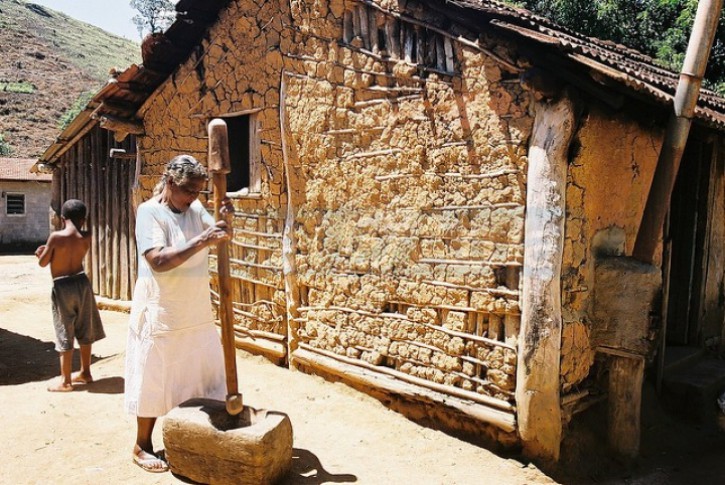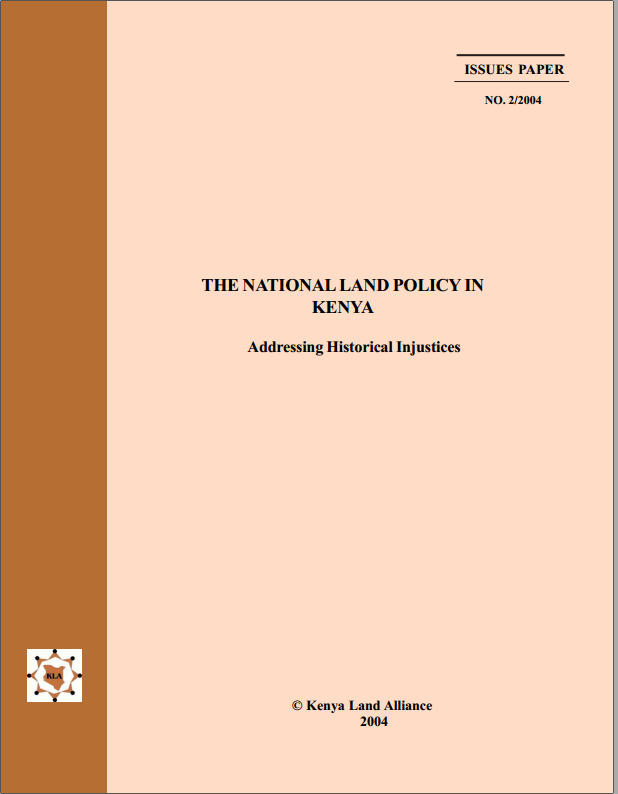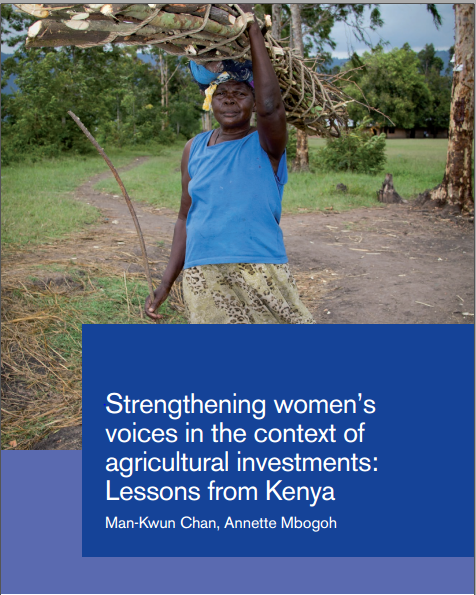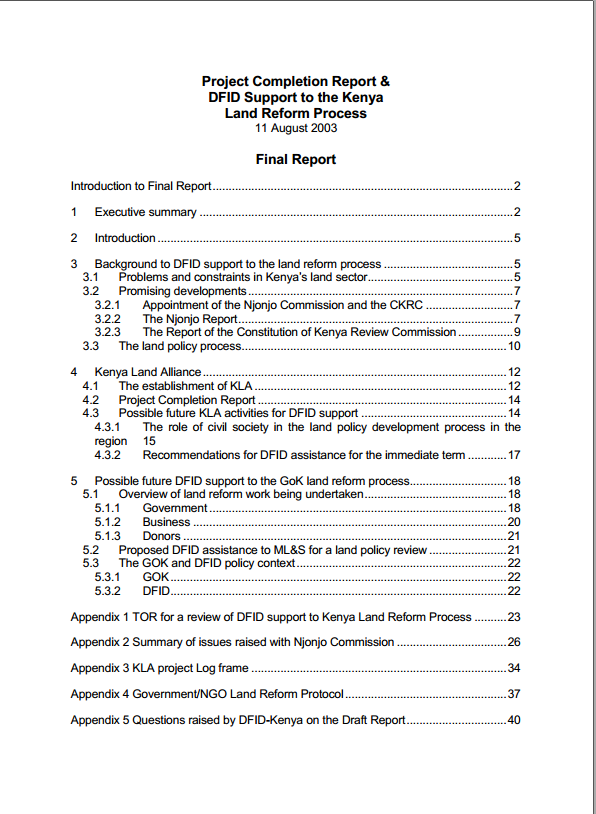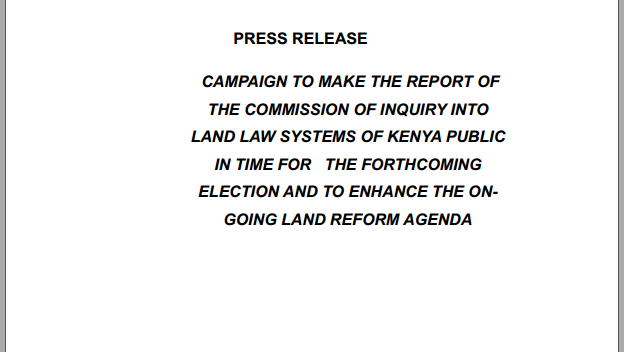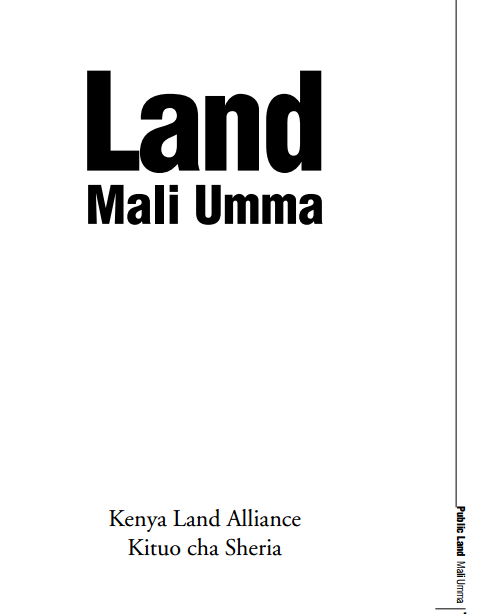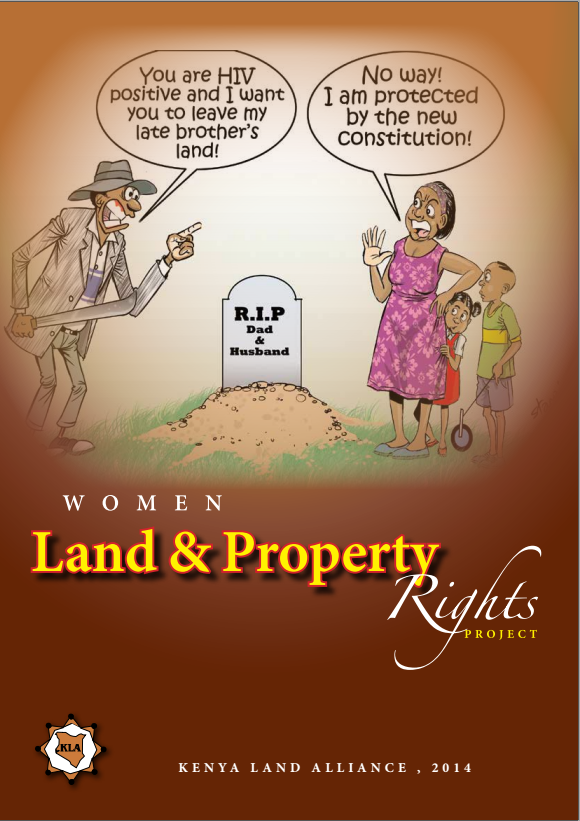As Áfricas Brasileiras
O Brasil possui um passivo social e histórico com as comunidades quilombolas, marcado pela escravidão e a exclusão. As questões fundiárias são aquelas que mais afligem essas comunidades, que lutam pela regularização ou ampliação de seus reduzidos territórios. Embora seja visível o avanço jurídico representado pela legislação desde a Constituição de 1988, as comunidades quilombolas são marcadas pela vivência cotidiana de conflitos por terra.
Righting The Wrongs: Historical Injustices and Land Reforms in Kenya
For historical reasons, Kenya inherited a highly skewed system of land ownership at independence in 1963. British colonialism in Kenya was not merely administrative. Rather, it was accompanied by massive and widespread land alienation for the benefit of settler agriculture. As a result the best agricultural land-the White Highlands and the adjacent rangelands were taken from the Africans, without compensation, and parceled out to white settlers. Colonial legislation was enacted to legalize this process.
Land Sector Non State Actors-(LSNASA) Press-Petition
The Land Sector Non State Actors (LSNSA) is a network of civil society organizations working together to promote secure and equitable access to land and natural resource for all through advocacy, dialogue and capacity building. We petition parliament on issues we hold to be of fundamental importance in the context and content of the two bills before the National Assembly.
The National Land Policy in Kenya Addressing Historical Injustices
The Historical Injustices Issues Paper seeks to present the various historical land claims issues and perspective related to them and consequently proffer policy statements for their redress.
Strengthening Women's Voices in the Context of Agriclutural Investments: Lessons From Kenya
This report, which focuses on Kenya, constitutes one of four country-wide assessments produced under the overall project. It draws on a literature review conducted by the Kenya Land Alliance (KLA) with additional inputs from IIED, as well as on primary field research conducted by KLA in April 2016 (see Section 1.2 for further information about the research methodology).
DFID Support To Kenya Land Reform Process
The consultancy required a Project Completion Report of DFID’s support to the Kenya Land Alliance (KLA) and advice to DFID on possible future activities that would support pro poor land reform in Kenya. This final report has been prepared following the comments on the draft report by the Hon Kimunya, Minister of Lands and Settlement, and senior managers in the Ministry, the responsible DFID-Kenya officials and KLA’s Co-ordinator.
Campaign to Make the Report of The Commission of Inquiry Into Land Law Systems of Kenya Public in Time For The Forthcoming Election and To Enhance The Ongoing Land Reform Agenda
The Kenya Land Alliance takes this opportunity to congratulate the Commission of Inquiry into the Land Law Systems of Kenya (‘Njonjo Commission’) for completing their task, which has painstakingly taken them three years. The KLA fraternity was pleased to hear the president’s remarks that the Njonjo report was a blueprint that would guide the future government in handling the delicate land issues efficiently and justly. Equally delighting was the Mr. Njonjo’s remark that wherever they went the wananchi expressed appreciation of their appointment to look into the land question.
Land Mali Umma
For a long time the issue of land and related problems has been debated mostly by academicians, politicians and professionals. Although the problem has remained more or less one of the most talked of in Kenya, the public has very often been left out of the debate. Again mostly the debate has been dominated more by complaining about either the lack of policy or the bad land policies and laws and the failure by successive governments to correct those problems.
Unjust-Enrichment-Volume 2
The figures of public resources estimated to have been channeled into private pockets are so high one hopes, obviously against hope, that they would turn out to be typographical errors. The figures of public resources estimated to have been channeled into private pockets are so high one hopes, obviously against hope, that they would turn out to be typographical errors.
Relevance of the World Social Forum to the Kenyan Situation
The World Social Forum in Nairobi in January 2007 was a timely New Year rallying event for Kenyans to revisit the fundamental principles for building a democratic and sustainable society as we prepare for December 2007 elections.The current organizing principles of the institutions that govern us in Kenya are narrow and serve the few at the expense of the many millions of Kenyans that live in abject poverty. Yet, from all corners of the country it is acknowledged that it is within our collective ability to create a healthy and sustainable society that serves and work for all
Land & Property Rights
The women Land Rights Project is a project of Kenya Land Alliance that aims at actualisation Women land and property rights, as provided in the Constitution of Kenya, 2013 and as a means towards poverty alleviation. This considering the fact that, in Kenya where the foundation of most communities is Agriculture and livestock production, women contribute up to 80% of workforce yet they only hold 1% of registered land in their names and around 5-6% of registered titles are held in joint names (Kenya Land Alliance, 2013).

